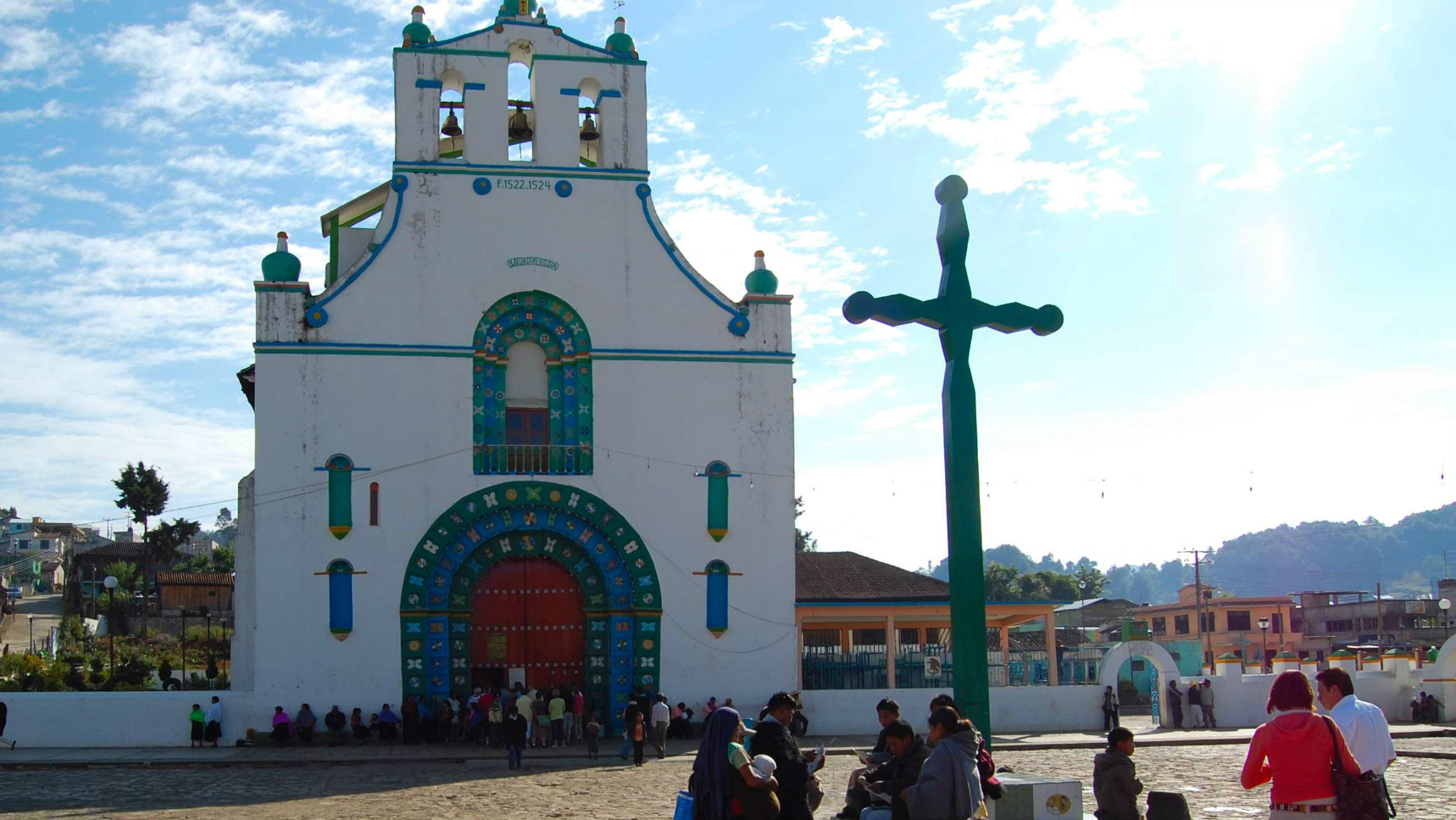Earlier this year, nearly 50 Mexican evangelicals returned to their hometown of Buenavista Bahuitz, in Chiapas, after five years of exile. Local leaders, who had forced the families out for leaving the “traditionalist” church, agreed to let them return on the condition that they pay a fee to support the village’s annual festivals.
But while the 12 families told World Watch Monitor that they’re just happy to be back, US officials and Christian persecution groups are ratcheting up pressure on the Mexican government to better protect indigenous Mexicans who leave a syncretistic Roman Catholicism. (Traditionalist Catholics in southwestern Mexico practice a blend of Catholicism and indigenous rites, according to Morning Star News.)
“It is time that the Mexican government provides justice and protection for victims of religious persecution while dealing with local and state officials that are part of the problem,” said Jeff King, president of International Christian Concern (ICC), in a statement. “A slow wave of religious persecution has been sweeping across Mexico and the culture of corruption and lack of accountability that surrounds religious freedom cases needs to end.”
In June, Roberta Jacobson, a senior State Department official, questioned Mexico about reports of “widespread discrimination, violence, and displacement” among its indigenous evangelical communities in Chiapas and other southern states, an ICC report stated. (At the beginning of July, Jacobson was nominated to be the US' next ambassador to Mexico.)
That same month, the ICC launched a social media campaign and petition calling on “the Mexican government to turn their attention to the most marginalized members of its society and ensure that all faiths are given equal protection and rights.”
Last year, Christian Solidarity Worldwide (CSW), Open Doors–Mexico, Voice of the Martyrs–Mexico, and Impulso 19 issued a joint call for the Mexican government to address the plight of the exiled Buenavista Bahuitz evangelicals.
While the constitution guarantees its citizens freedom of religion, this right often conflicts with the Law of Uses and Customs, which grants local and regional autonomy in parts of the country with high indigenous populations. From a 2015 CSW report:
Historically, the majority of religious liberty violations have tended to arise out of conflicts between traditionalist or syncretistic Roman Catholic local leaders, and non–Roman Catholics who do not wish to participate in or contribute financially to religious festivals, or who wish to practice a different faith or no faith. The entrenched culture of impunity when it comes to violations of religious freedom has led to a still small but significant number of cases of [Roman Catholic] attempting to enforce religious conformity in their communities and persecuting those who do not comply.
Under the Law of Uses and Customs, some local leaders have cracked down on converts, cutting of their water, sewage, or electricity, preventing their children from attending school, and committing acts of violence against them, including murder.
Indigenous Mexicans who become evangelicals often face resistance from those afraid of losing financial and political clout, according to a video put out earlier this month by the ICC. When these new evangelicals stop celebrating Santa Muerte and paying homage to the local witch doctor, it threatens the village’s existing power structure, it said.
In 2005, a Huichol mob expelled 80 evangelicals, likely driven by anger that the new converts would no longer buy alcohol and consequently bankrupt the local caciques.
Many of the incidents have taken place in Chiapas, which is home to more than 4.5 million people and one of Mexico’s poorest states.
Mexico was ranked No. 38 on Open Door’s 2015 World Watch List, marking its first appearance in three years. ICC estimates that there are around 70 open cases involving evangelicals, each involving 20–100 victims.
Advocates say that the federal and state government must do more to intervene. A Chiapas couple who had converted was released from prison this month after nearly 10 days, after state government religious affairs officials and municipal leaders negotiated an agreement.
“Many of these cases could be resolved even more rapidly than this case in Tseteltón, if there was a dialogue,” Luis Herrera of Martyrs-Mexico told ICC. “This issue has not been a priority for the authorities and they have not acted with courage…There is still a lot to do in Chiapas, however we hope that with the active participation of the State Government of Chiapas…we will see more decisive advances in other cases.”
CT has previously covered good news from Mexico’s Chiapas state: the local government decided not to expel 65 evangelicals from their homes in 2007, and a festival celebrating religious freedom saw 25,000 Christian attendees. Mexico approved a constitutional reform guaranteeing the right to public religious events in 2012.
CT’s recent Mexico coverage has also examined how missionaries from indigenous backgrounds may be the key to reaching the nations; whether Mexico’s drug violence should curb missions trips to the region; what it’s like to minister amid the ancient Mayan ruins of Palenque; and a documentary chronicling the country’s fight for religious freedom.









